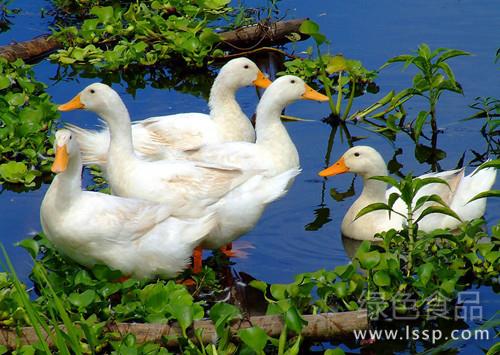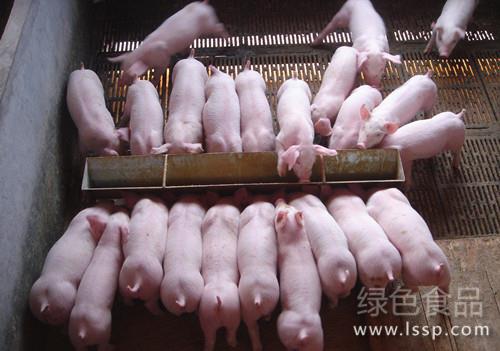Main points of improving the quality of Meat Duck by keeping Heat and preventing Disease, increasing Light and preventing feather pecking in Winter

Duck
Do a good job in duckling heat preservation and epidemic prevention:
Winter blight often causes uneven growth of ducks, mainly to keep ducklings warm. The temperature must be kept above 30 ℃ in the first 3 days of the rearing period to ensure that the yolk of the ducklings is absorbed completely and the breeding problems will be reduced in the later stage. Ducklings need to adapt to the temperature step by step, not only can not let the wind blow directly, but also need high temperature in the greenhouse at night and during the day. If the duck house is too tightly sealed, the concentration of ammonia in the house will be too high, and it will be more likely to cause respiratory diseases. Duck colds are common in winter. Before 20 days of age, some cold prevention drugs should be added every time, and then vaccination should be done to strengthen environmental hygiene and disinfection, which can reduce the incidence of diseases.
Make adjustments in all aspects to prevent duck from pecking feathers:
Dry weather in winter, online breeding, feather pecking phenomenon is obvious, because the wind can not block the wind, the wind blows directly to the duck, making it too stressed and causing feather pecking. The problem of cushion material will also have an impact, and it has been proved in practice that the woodiness phenomenon of wood bran cushion is obviously more than that of shavings. An effective way to solve the problem of feather pecking: after all changing the ground feeding, the duck house will turn on ventilation during the day, put down the wind shield at night, and make good use of wind shielding equipment to reduce stress, which can effectively reduce feather pecking.
Strengthen management to reduce the occurrence of "bare ducks" in ducks:
Captive ducks should prevent bedding from being too little, too thin, too dirty and too damp in winter. Because the farm is wet and muddy, and the padding in the barn is too thin or without padding, the duck sleeps on the cold ground or on the too wet and dirty fecal mat, which not only affects the weight gain, but also the duck breast and belly feathers are easy to fall off, causing the "bare plate duck" phenomenon. This will lead to a decline in the appearance quality of meat ducks, affect sales and carcasses, and reduce the efficiency of raising ducks. So, before entering the seedling. The preparation work should be strict, when the bedding material is insufficient, it is not allowed to enter the seedling, and in the middle and later stage of culture, the feces should be cleaned in time, and the bedding material should be replaced and replenished in order to keep the site dry and sanitary; the captive breeding site should have a certain slope in design to facilitate drainage; reduce the feeding density, let the ducks have a dry and comfortable environment, improve their physique and ensure their health, so that they can gain weight quickly and have good carcass quality.
Artificially increase the light to prevent ducks from "short hair and water":
Due to the short growth cycle of ducks in winter, such as too short water, it will affect the time to market, the breeding time is too long, and the cost will increase, so we should make great efforts on the feather growth of meat ducks in winter. Light, intensity and trace elements are closely related to feather growth. Poor natural light conditions and short time in winter result in slow growth of duck feathers. Therefore, duck raising must be artificially light-filled in winter, using 24-hour light, and winter lighting must be uniform. Finally, the ducks were fed with trace elements to promote the growth of duck feathers after 20 days of age.
- Prev

Scientific management measures of snake farm all the year round
Snakes are variable temperature animals, and their body temperature changes with the rise and fall of ambient temperature. good management of snake farms can ensure the normal growth and reproduction of snakes and improve the yield and quality of snakes. Spring management of breeding snakes is generally the most appropriate to introduce in spring, transport do not have to worry about the weather is too cold or too hot, and the spawning period is also at this time. Before introducing the snake into the snake farm, you should clean up in advance and do a good job of cleaning and disinfection. The newly stung snake basically did not eat in the first two to three weeks, but began to eat a small amount of food in April and ate in May.
- Next

Prolapse of rectum in pigs can not recover how to prevent and cure prolapse of anus in pigs
Prolapse of rectum in pigs can not recover how to prevent and cure prolapse of anus in pigs
Related
- On the eggshell is a badge full of pride. British Poultry Egg Market and Consumer observation
- British study: 72% of Britons are willing to buy native eggs raised by insects
- Guidelines for friendly egg production revised the increase of space in chicken sheds can not be forced to change feathers and lay eggs.
- Risk of delay in customs clearance Australia suspends lobster exports to China
- Pig semen-the Vector of virus Transmission (4)
- Pig semen-the Vector of virus Transmission (3)
- Five common causes of difficult control of classical swine fever in clinic and their countermeasures
- Foot-and-mouth disease is the most effective way to prevent it!
- PED is the number one killer of piglets and has to be guarded against in autumn and winter.
- What is "yellow fat pig"? Have you ever heard the pig collector talk about "yellow fat pig"?

